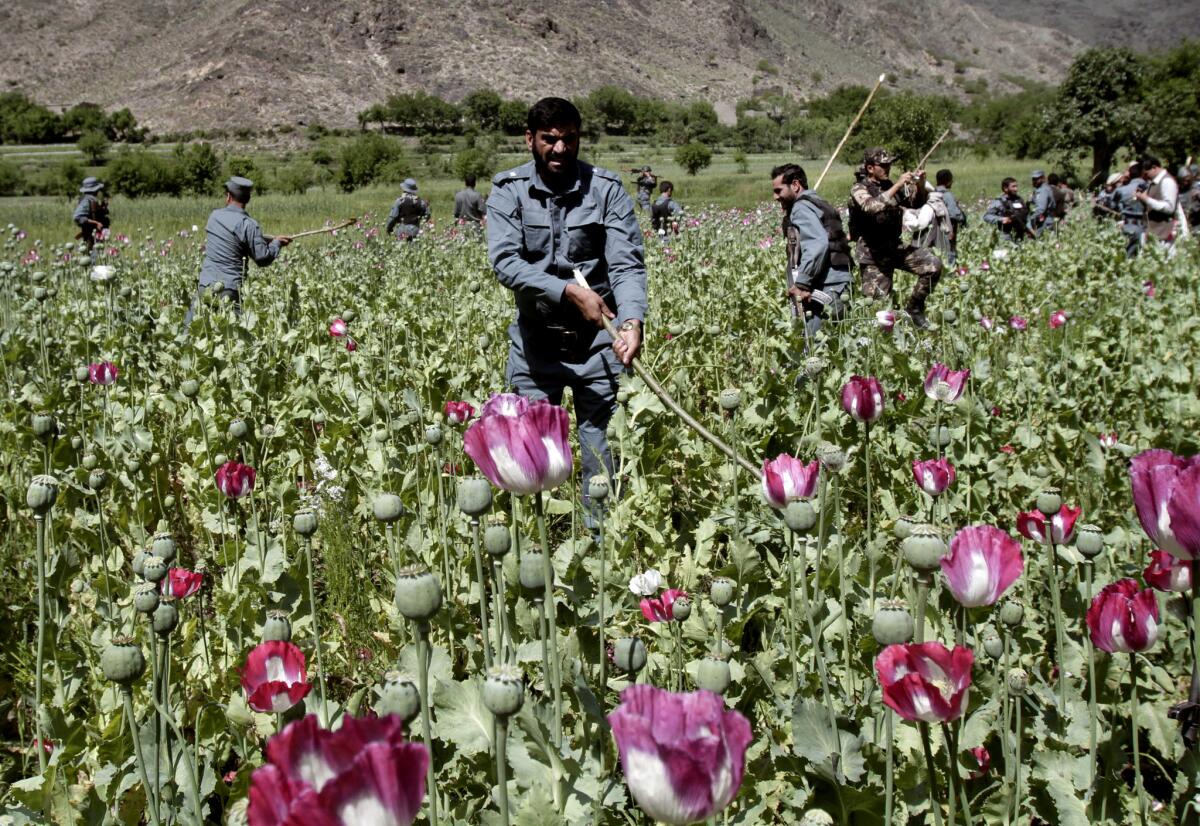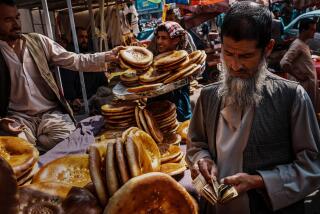Survey: Opium production up again in Afghanistan

Reporting from Kabul, Afghanistan — An annual survey of opium cultivation in Afghanistan has confirmed previous reports that the farming of poppies has reached an all-time high.
The survey, conducted by the United Nations Office on Drugs and Crime and Afghanistan’s Ministry of Counternarcotics, comes less than a month after Washington’s Special Inspector General for Afghanistan Reconstruction, SIGAR, called the effectiveness of the United States’ $7.6-billion eradication programs into question.
According to the UNODC survey, net opium cultivation reached 578,000 acres in 2014, an increase of 7% over 2013.
The upsurge is thought to be the result of increasing insecurity and the economic uncertainty caused by the recent presidential elections. Campaigning lasted for more than 10 months.
The number of provinces where more than 250 acres of land is devoted to opium production remained steady at 19, although there were slight changes in the list.
Helmand province, in the southwest, remains Afghanistan’s narcotic hub, accounting for 46% of all cultivation.
The most startling changes were in mountainous Badakhshan province, where cultivation increased by 77% in 2014.
In August, Noor Ahmad, a provincial council candidate in Badakhshan, was arrested while smuggling 648 pounds of opium.
Dr. Nilofar Ibrahimi, a parliamentarian from Badakhshan, said in an interview with The Times that the numbers from the province highlight the failures of Afghan and foreign anti-narcotics efforts.
Ibrahimi said government efforts have turned a blind eye to organized crime.
“Everyone at every level — from the highest ministers to the lowest worker with access to a transport vehicle or a border crossing — is involved,” she said.
Rather than targeting criminals at the core of the drug trade, Ibrahimi said, counter-narcotics efforts have jailed “the wrong people,” farmers and small-time traffickers.
In the last three years, Badakhshan has become increasingly dangerous. Along with banditry and kidnapping, the armed opposition has staged several operations in the province’s districts.
“The security situation has to be addressed; these crops are what put food in the mouths of the opposition,” Ibrahimi said.
Latifi is a special correspondent
More to Read
Sign up for Essential California
The most important California stories and recommendations in your inbox every morning.
You may occasionally receive promotional content from the Los Angeles Times.










